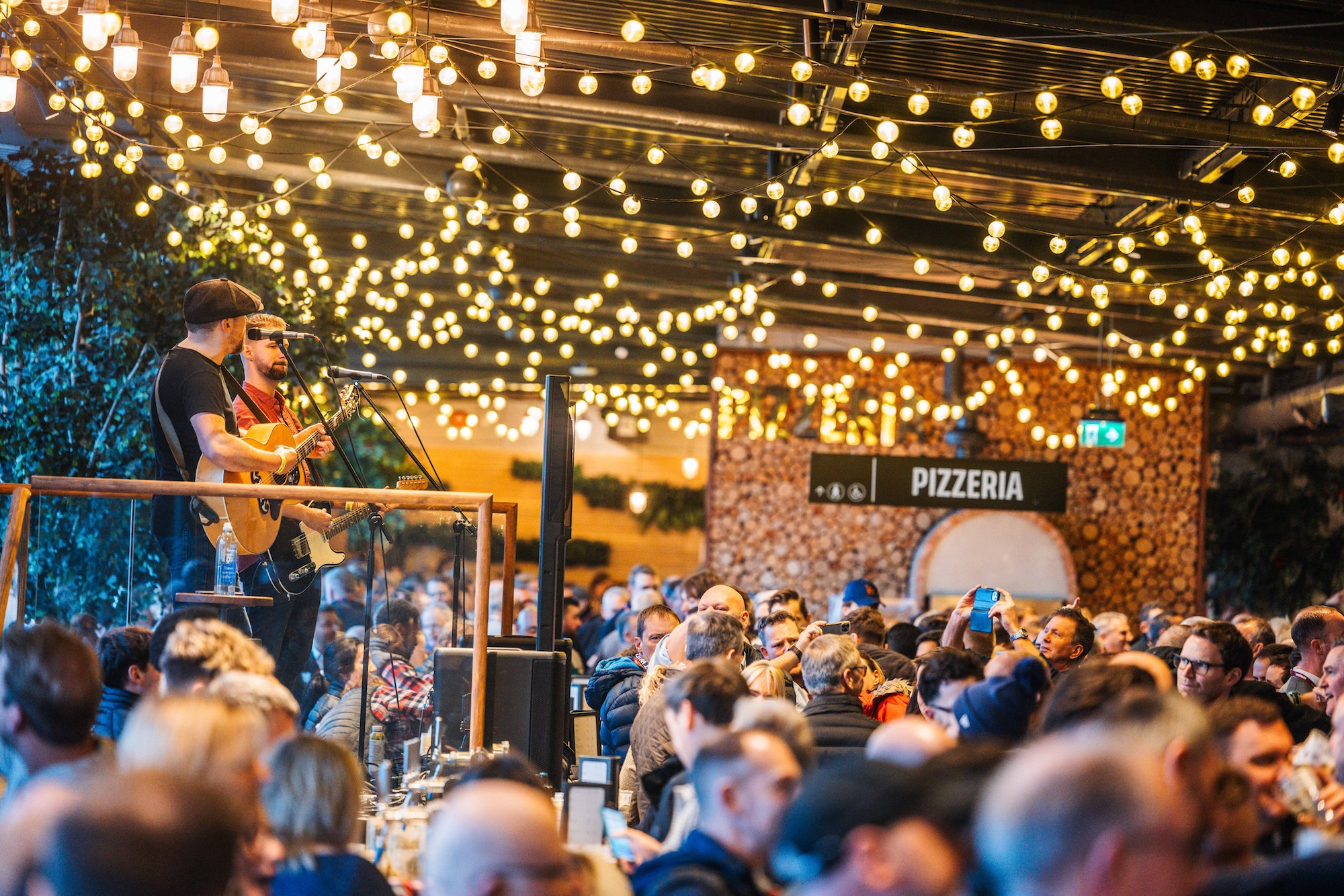It's no secret that food is now a key part of any event. Once simply an afterthought, the secret to a successful meeting or conference doesn't simply lie in the content, but in a myriad of other factors, including the structure, location, destination and food. Get the menu wrong and it will take the shine off what could otherwise have been a great event for delegates. And these days it's not just about quality, but also sustainability, nutrition and the latest trends - across the board, delegates now expect more from the food at the events they attend.
This increasingly important factor is being embraced not only by event caterers, but also by venues, which are keen to gain a reputation for cutting-edge thinking in terms of cuisine and sustainability in the race to top the list of corporate planners' choice of event location.
"In a dynamic and competitive marketplace, venues need a unique selling point that can not only keep up with changing trends, but also lead them," says Sally Davis, managing director of group catering for the NEC Group, which runs several venues of varying sizes in the Birmingham area. "Catering is fast becoming a recognised unique selling point for our group of venues in the Midlands, and, with exciting standalone projects in the pipeline, will assist in achieving a long-term competitive market position in its own right."
Richard Davis, deputy general manager for Leith's, which caters for The Queen Elizabeth II Conference Centre (QEIICC), London, among others, agrees, saying:
"Judging from feedback forms returned by clients, one of the most important reasons for using The QEIICC is the catering. It is, therefore, very high on the agenda in the smooth running of an event. If the food is badly presented or seasoned, for example, it can ruin the whole experience."
Venues and caterers also agree that the ante has certainly been upped recently. "We have become much more sophisticated and demanding when it comes to food, and, of course, that is very apparent at events where the host's reputation is as stake," says John Hearn, executive chef of food design and event management company, Tapenade.
Meanwhile, Davis adds: "Food has always been important to us and to our visitors, but it has become even more so recently with the profiling of celebrity chefs, great cookery programmes and books available to the general public and a real focus on health and the sustainable environment. Our consumers are often discerning, internet savvy and more food conscious than ever, and we're continually moving to accommodate their demands by being better at listening to our customers and responding to their feedback."
The success of many unusual or boutique venues - call them what you will - has been the attention to detail not only in style and facilities, but especially in food, with in-house catering becoming increasingly popular. A classic example is London's Commonwealth Club. The venue is home to the royal Commonwealth Society and its central location and exclusivity make it the perfect location for private, discreet dinners, to upscale social sit-downs for up to 220 people. Bespoke menu items marry locally sourced produce with a host of flavours from across the British Commonwealth, tapping into its historical background.
"Current menus include a micro-leaf salad of rocket, watercress and edible nasturtium and evening primrose flowers; and, with a nod towards Great Britain's favourite dish, a tandoori quail, plantain curry and crisps starter," explains head chef Mark Page. "Continuing the mutton renaissance led by Prince Charles, an organic Jamaican spiced leg of mutton is served with a selection of market fresh vegetables. Spiced line-caught sea bass, pine nut and butter bean falafel and aubergine caviar feature too; and desserts draw on spring's harvest with a rhubarb jelly served with a vanilla foam."
Page is constantly looking for ways to keep both his banqueting and restaurant dining menus in line with today's sophisticated palate, and health and ethical issues clearly appear top of his diners' agendas. The inclusion of organic and fair-trade items reflects these themes.
"The amount of people who ask if the sea bass is line caught, the cod sustainable or the tuna dolphin friendly has risen dramatically in the 10 years I have been working at the Commonwealth Club," he says. "The menus are increasingly reflecting all of these apprehensions people have concerning the fishing trade."
With increasing concerns among delegates over sustainability, seasonal menus are growing in popularity as they reduce food miles and support local communities - and you don't have to be an out-of-town venue to offer them.
"This season's menus really capture every element of spring, ensuring maximum taste and minimum food miles, wherever possible," says Claire Lawson, general manager of City venue the Brewery, who also cites the importance of a healthy and nutritious event menu, adding: "Health issues are definitely at the top of the agenda, which is why the Brewery's chefs work in consultation with nutritionists to provide menus that are beneficial and still robust in flavours."
Russell Downing, manager at the pioneering Sheepdrove Eco Conference Centre in Berkshire, provides a fitting footnote on how the culinary issue is likely to grow even more in importance, and why excuses for disappointing delegates in this area no longer wash.
"Catering is often wrongly considered one of the biggest barriers to sustainable, organic and green events," he says. "It is considered expensive and hard to manage, but this misunderstanding must be challenged to support delegate desires. People, including organisers and attendees, are much more conscious about what they eat, they want to know the source of the products they are eating and need to know they aren't packed full of additives and preservatives."
So add a large slice of quality, a liberal sprinkling of nutrition, several grammes of sustainability and a strong local flavour, topped with creativity, and you'll be well on the way to getting your event catering right.






